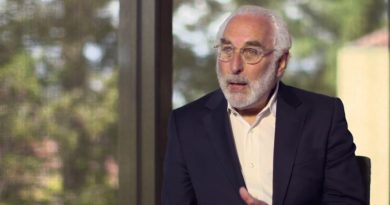Lock System Inventor Dealt Another Blow at CAFC
“[A] complaint must include ‘enough facts to state a claim to relief that is plausible on its face.’” – CAFC
The U.S. Court of Appeals for the Federal Circuit (CAFC) on Tuesday, October 10, affirmed a district court’s dismissal at the pleading stage of a patent infringement, unjust enrichment and antitrust case against Qualcomm, Inc.
Larry Golden sued Qualcomm in the U.S. District Court for the Northern District of California, alleging infringement of his patents on a system for locking, unlocking or disabling locks on vehicles upon detection of chemical or biological hazards, as well as antitrust and unjust enrichment claims. Golden has sued on these patents before, losing appeals to Intel, Apple and the United States government. In May of this year, the CAFC said that Golden’s case against Intel included “vague, conclusory allegations as to antitrust violations (without specifically identifying the supposed illegal conduct) and allegations of injury (again without specifying the specific injury)” that were “not adequate to allege either Article III standing or antitrust injury.”
In the present case, the district court granted Qualcomm’s motion to dismiss without leave to amend under Rule 12(b)(6) of the Federal Rules of Civil Procedure, finding that Golden failed to adequately plead (1) direct infringement, (2) contributory infringement, or (3) induced infringement. The court said Golden did not sufficiently explain which Qualcomm product allegedly infringed the patents, or how. “Although the complaint did include two claim charts, the district court found those irrelevant as they only covered products produced by two non parties, GM and Samsung, not Qualcomm,” explained the CAFC.
Golden argued that he provided tables and charts explaining how Qualcomm infringed, but Qualcomm countered that those factual allegations were added in Golden’s opposition and reply brief and not part of the original complaint. Furthermore, Qualcomm said, and the district court agreed, that even considering those allegations, Golden still failed to state a plausible claim of direct infringement.
The CAFC agreed, finding that Golden ultimately “failed to clearly identify which specific claims of the asserted patents are being infringed.” The complaint failed to identify the specific Qualcomm products that infringed or, in the case of implied reference to specific products, to “adequately explain how” those products infringed. The CAFC rejected Golden’s argument that the claim charts in his complaint were “enough to adequately plead patent infringement because they ‘mirror’ a claim chart presented in a previous case, Golden v. Apple Inc., No. 2022-1229, 2022 WL 4103285 (Fed. Cir. Sept. 8, 2022). The court said that the complaint did not include reliance on the previous claim chart and that “such a reference on appeal is improper, as a complaint must include ‘enough facts to state a claim to relief that is plausible on its face.’”
Furthermore, in Golden v. Apple, the CAFC’s determination that the claim chart was not “facially frivolous” did not preclude the defendant from filing subsequent motions to dismiss for failure to state a claim. The failure to plead direct infringement leads to a failure to plead contributory or induced infringement.
As to Golden’s antitrust claims, the CAFC said that “general allegations” about Qualcomm’s activities affecting the flow of interstate commerce did not suffice to allege that Golden and Qualcomm participate in the same market. “In fact, Golden’s complaint seems to allege that he is not a participant in the same market as Qualcomm. S.A. 36 (‘Qualcomm’s anticompetitive practices has [sic] restrained Plaintiff from entering the market to collect royalties on his patented inventions.’), wrote the court. Golden also alleged injury only in “conclusory fashion,” implying that patent infringement was the injury, which the CAFC had already determined he failed to properly plead. “To the extent that Golden attempts to premise his antitrust claim on a barrier to entry, we agree with the district court that this is ‘fatally implausible,’ as Golden ‘is free to license his patents to whoever wants to license them, but [Golden’s conclusory] theory does not state a viable antitrust claim.”
Since California law does not recognize unjust enrichment as a separate cause of action, Golden’s failure to state a claim for patent infringement was fatal to his unjust enrichment claim. The district court’s judgment was thus affirmed.
Eileen McDermott
Eileen McDermott is the Editor-in-Chief of IPWatchdog.com. Eileen is a veteran IP and legal journalist, and no stranger to the intellectual property world, having held editorial and managerial positions at […see more]







